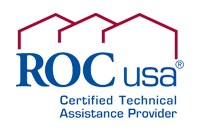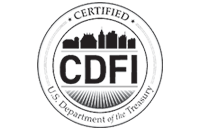
Real returns: the case for universal preschool
By Community Loan Fund staff
Another economist adds his voice to the call for universal early childhood education.
One would think we have reached critical mass in public support for Universal Preschool when a recently published article in Communities and Banking, the Federal Reserve Bank of Boston magazine, identifies universal access to early childhood education programs as yielding important societal and economic benefits.
Arthur MacEwan, professor emeritus of the Dept. of Economics at the University of Massachusetts, Boston, makes the case for publicly funded early childhood education for all, aligned with how we currently fund our public education system. He envisions a system that benefits all families, as opposed to the current sporadic network of small-scale programs in which assistance is targeted only to the most financially needy families.
Professor MacEwan cites recent research in finding that, "Gains for children from low-income families are greater in programs that are diverse in terms of the income levels of the children's families."
The article also speaks to the economic burden of the cost of child care. For many working families, quality early education is simply out of reach. A single mother in Manchester who earns the median income ($51,420) can pay as much as one-third of her income for child care for her 4-year-old. For some families, the cost of child care can actually exceed housing costs.
New Hampshire, like many other states, provides limited assistance to low- and moderate-income working families through Head Start programs and financial aid. Public funds for such programs have been cut in recent years. I do see signs of hope, however, in recent efforts such as the Strong Start for America's Children Act, federal legislation that, if passed and funded, would greatly increase access to and quality of programs that serve children from birth to kindergarten.
In my view, this issue presents an important policy opportunity. An abundance of reliable research points to the importance of investing in young children through such policies as universal preschool, yet we haven't marshaled the resources necessary, through Congress or state legislatures, to make significant progress. The opportunity here is to seize this momentum, and to translate the existing body of research into viable, comprehensive early childhood policies as part of the broader economic and educational framework.
It will require a significant commitment of resources to achieve, but I believe it is an investment worth making, and one that will yield real financial returns returns that have been documented by leading economists, including Arthur Rolnick and Rob Grunewald of the Federal Reserve Bank of Minneapolis. In their report, The Economics of Early Childhood Development, Rolnick and Grunewald contend that, "Investing in early childhood development yields a much higher return than most government-funded economic development initiatives."
Rolnick and Grunewald argue that investments in human capital, very young humans in this context, provide a high public return through higher educational attainment and lower rates of costly social problems. Cost-benefit analyses of the most-well-known longitudinal studies of high-quality early childhood programs found that they yielded annual rates of return, adjusted for inflation, between 7 and 18 percent. These are financial yields that any investor would be happy to see in their portfolio.
The recent Federal Reserve Bank of Boston article suggests prudent public policy in support of comprehensive early childhood education, coming from a highly respected source. The call for universal preschool speaks to the essence of community economic development that has the power to yield long-term community benefit. The benefits of such policies and programs are well established. The real challenge, nationally and in New Hampshire, is to resolve the politics of paying for this investment.















